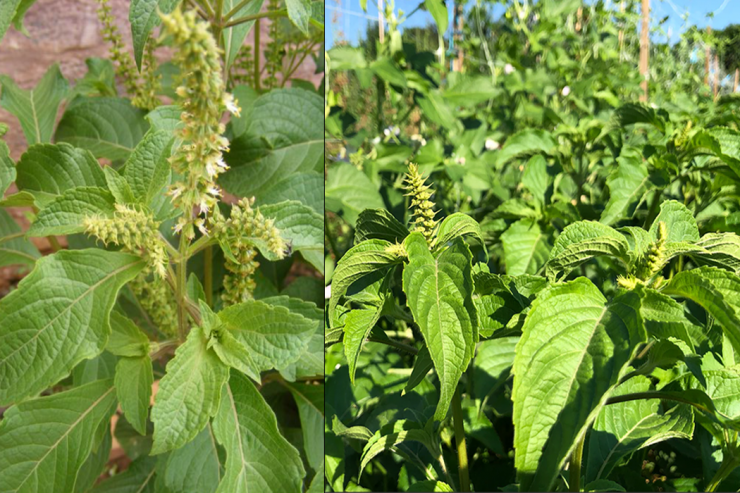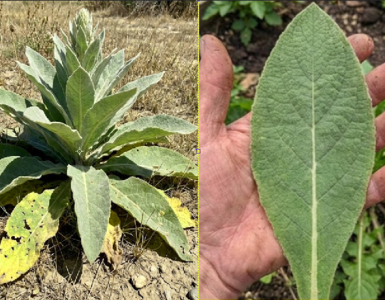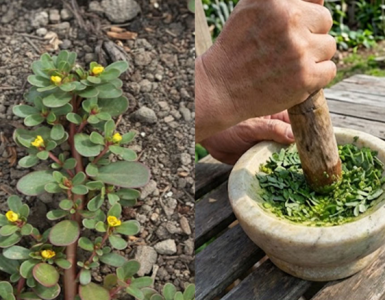Scent leaf (Ocimum gratissimum), also known as African basil or clove basil, is a powerful medicinal herb widely used in African traditional medicine and culinary practices. Beyond its aromatic flavor, this plant offers a range of surprising health benefits that make it a must-have in your diet and wellness routine.
1.Improves Digestive Health
Relieves Indigestion and Bloating: Scent leaf contains compounds that aid in digestion by stimulating the production of digestive enzymes and reducing bloating.
Treats Diarrhea and Stomach Infections: Its antibacterial properties help fight gastrointestinal infections and soothe an upset stomach.
How to Use: Brew scent leaves into a tea or include them in soups to ease digestive discomfort.
2.Boosts Immunity
Rich in Antioxidants: Scent leaf is packed with antioxidants that fight free radicals, protecting the body from oxidative stress and chronic diseases.
Fights Infections: Its antimicrobial and antifungal properties help ward off infections and strengthen the immune system.
How to Use: Add fresh scent leaves to your meals or make a juice with crushed leaves and water to boost immunity.
3.Lowers Blood Sugar Levels
Supports Diabetes Management: Studies show that scent leaf can help regulate blood sugar levels by improving insulin sensitivity.
Prevents Spikes: Its active compounds reduce glucose absorption in the bloodstream, making it beneficial for people with diabetes or prediabetes.
How to Use: Drink scent leaf tea or include it in your diet regularly after consulting your doctor.
4.Promotes Respiratory Health
Clears Airways: Scent leaf has expectorant properties that help clear mucus from the lungs, making it effective for colds, coughs, asthma, and bronchitis.
Reduces Inflammation: Its anti-inflammatory effects soothe respiratory tract irritation and promote easier breathing.
How to Use: Boil scent leaves in water and inhale the steam or drink the infusion to alleviate respiratory symptoms.
5.Enhances Skin and Oral Health
Treats Skin Conditions: Scent leaf’s antibacterial and antifungal properties make it effective for treating acne, rashes, and skin infections.
Improves Oral Hygiene: Chewing on fresh scent leaves or using it as a mouth rinse helps combat bad breath, toothaches, and gum infections.
How to Use: Apply crushed leaves to affected skin or use the juice as a natural mouthwash for oral care.
How to Use Scent Leaf
Tea: Boil fresh or dried scent leaves in water for 10-15 minutes, strain, and drink.
Juice: Crush fresh leaves, add water, and strain to extract the juice. Drink for internal benefits.
Topical Application: Crush fresh leaves into a paste and apply directly to the skin for infections or rashes.
In Cooking: Add fresh scent leaves to soups, stews, and sauces for flavor and health benefits.
Precautions
Pregnancy: Avoid excessive consumption during pregnancy as it may stimulate uterine contractions.
Allergies: Perform a patch test before applying scent leaf topically, as it may cause skin irritation in some individuals.
Moderation: Consume in moderate amounts to avoid any potential side effects.
Scent leaf (Ocimum gratissimum) is more than just an aromatic herb—it is a natural remedy packed with nutrients and medicinal properties. From improving digestion to boosting immunity and managing blood sugar levels, its benefits are truly remarkable. Incorporating scent leaf into your daily routine can help enhance your overall health and well-being.






Add comment